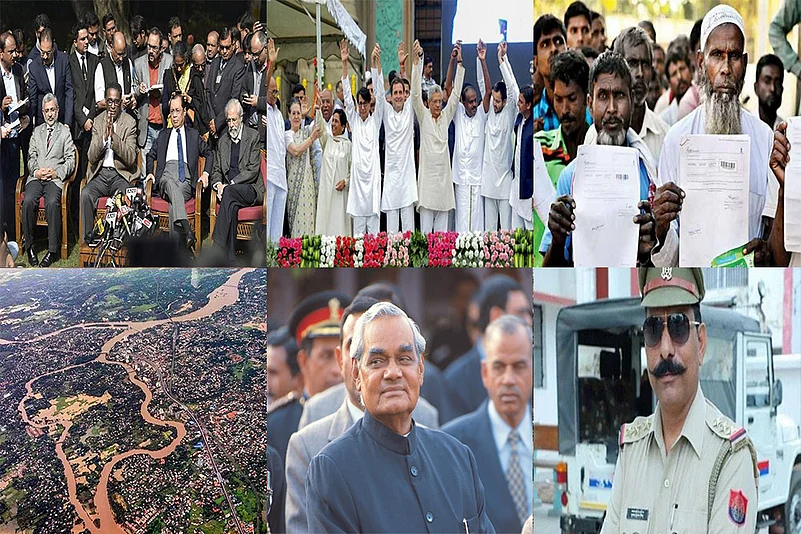From Sabarimala row to Jammu and Kashmir’s political crisis, from Assam’s NRC to Assembly elections and Kerala floods, Outlook takes a look back at the long, turbulent trip that 2018 has been.
Four SC judges hold a press conference against Dipak Misra

Launching a sharp attack on Justice Dipak Misra, four senior-most Supreme Court judges – Justices J Chelameswar, Ranjan Gogoi, Madan B Lokur and Kurian Joseph – held an unprecedented press conference in January this year for ignoring the concerns voiced by them.
The judges questioned Misra over the manner in which the cases were assigned in the roster.
Advertisement
Read the full story here: https://bit.ly/2RjGzoA
Kathua Rape

A minor girl's rape and murder shook the conscience of the nation in February. Asifa, a minor, was brutally raped and later killed in Jammu and Kashmir's Kathua. The incident turned political when members of the ruling coalition partner BJP rallied in favour of the accused. The investigation in the case is going on and the police have filed charge sheet in the case.
Read the full story: https://bit.ly/2HbJTx7
Naxal attacks in India

On 13 March 2018, at least nine Central Reserve Police Force (CRPF) personnel were killed and six others were injured when Maoists blew up a mine-protected vehicle with an IED in Sukma district, Chhattisgarh, India.
Advertisement
On October 30, a Doordarshan crew was attacked in Dantewada while they were out to cover the poll preparations in the area ahead of the upcoming assembly elections. Followed by this in another attack, five persons including a CISF jawan were killed.
Read the full story here: https://bit.ly/2EQrgwZ
Nipah Virus Outbreak

The outbreak of the Nipah virus, a highly fatal emerging zoonotic virus, was reported in Kozhikode district during May-June this year. At least 28 people died due to the virus in the state. Primary suspect about the source of the virus was Fruits bats.
Read the full story here: https://bit.ly/2GDEUkg
Assam NRC

The National Register of Citizens (NRC) is the list of Indian citizens of Assam. It was prepared in 1951, following the census.
The final draft National Register of Citizens (NRC) list was announced on July 30. The list included the names of 2.89 crores of 3.29 crore applicants.
A total of 40,70,707 people did not make it to the list. However, following a massive agitation across the state, the government announced that people with missing names in the draft can file claims for inclusion.
Read the full story here: https://bit.ly/2Al5z5c
Muzaffarpur Shelter Home Rape Cases
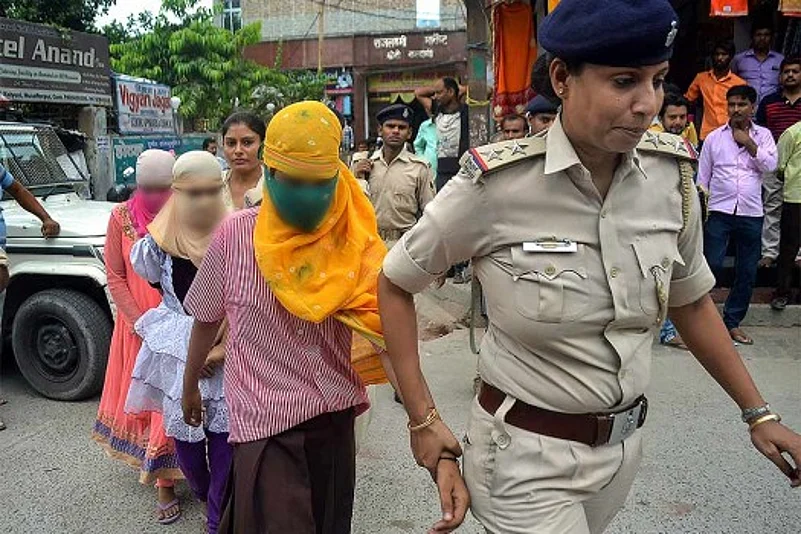
In Bihar’s Muzaffarpur, cases of rapes, sexual abuse and torture were reported from a shelter home that ran under a non-governmental organization called "Sewa Sankalp Evam Vikas Samiti”.
Advertisement
Following protest and nation-wide outcry over the incident, the case was handed over to the CBI for investigation which has made a number of arrests including that of the former Women and Child Welfare Minister Manju Verma.
Read the full story here: https://bit.ly/2CCrztD
Farmer’s protest

2018 was a tough year for the farmers of the country. The year witnessed some big agitations by farmers from across the country several times.
Some protest were held against the government’s pricing policy of the agricultural produce, while some against the farm loan waivers.
On one hand, when PM Modi is yet to say anything on the loan waiver, the Congress after winning three Hindi-heartland states in assembly polls has announced loan waiver of Rs 35,000-38,000 crore, Rs 18,000 crore and Rs 6,100 crore for Madhya Pradesh, Rajasthan and Chhattisgarh, respectively.
Advertisement
Read the full story here: https://bit.ly/2BJh06I
Kerala floods

From 9 August 2018, severe floods slashed Kerala following an unusually high rainfall during the monsoon season. It was the worst flood in Kerala in nearly a century. Over 483 people died, and 14 are missing. About a million people were evacuated, mainly from Chengannur. At least 14 districts of the state were placed on red alert. According to the Kerala government, one-sixth of the total population of Kerala had been directly affected by the floods and related incidents.
The Indian government had declared it a Level 3 Calamity, or "calamity of a severe nature”. It is the worst flood in Kerala after the great flood of 99 that took place in 1924.
Advertisement
Read the full story here: https://bit.ly/2rWvNX3
CBI Vs CBI war
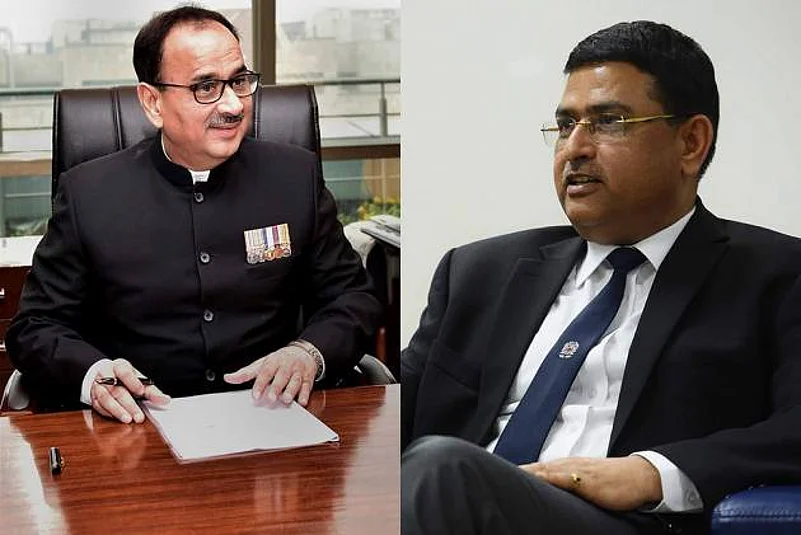
The year saw a bitter fight between CBI Director Alok Verma and Special Director Rakesh Asthana. After several accusations, allegations and investigations, the government decided to divest Verma and Asthana of their power and functions in any manner as Director and Special Director till CVC concludes its investigation.
Nageshwar Rao, IPS, who was working as CBI Joint Director is currently looking after the duties and functions of the director.
Both Sharma and Asthana have filed pleas in Supreme Court.
Read the full story: https://bit.ly/2GEVFkm
High-Octane Assembly elections in 2018

This year’s assembly election was nothing more than a see-saw ride. Polls were held in several states including Madhya Pradesh, Telangana, Mizoram, Rajasthan, Chhattisgarh, Karnataka, Nagaland, Tripura and Meghalaya.
Advertisement
Among these, Congress grabbed the power in Madhya Pradesh, Rajasthan and Chhattisgarh, whereas,TRS retained Telangana and MNF won Mizoram.
On the other hand, in Nagaland, Meghalaya and Tripura where elections were held in February, Nationalist Democratic Progressive Party (NDPP)’s Neiphiu Rio, Conrad Sangma of National People’s Party (NPP) and Biplab Kumar Deb of BJP, respectively were elected as chief ministers.
Read the full story here: https://bit.ly/2QbpjgQ
Political Crisis in Jammu And Kashmir

Jammu and Kashmir witnessed a political crisis this year following the collapse of the Mehbooba Mufti-led PDP-BJP coalition government.
Followed by the collapse, Mehboob Mufti resigned as the Chief Minister and Governor’s rule was imposed in the state.
Advertisement
This was the first time since 1996, that the Central rule was imposed in the militancy-hit state.
On November 21, J&K Governor Satyapal Malik dissolved the legislative assembly after Mehboob Mufti-led PDP staked claim to form government in the state with the support of Congress and National Conference (NC).
Read the full story here: https://bit.ly/2TdnqSt
Cyclone Gaja:

A severe cyclonic storm, Gaja, battered the Tamil Nadu coast on November *** leaving at least 28 people dead and causing widespread destruction. So powerful were the gales that the roof sheets of the Nagapattinam railway station were damaged.
Read the full story here: https://bit.ly/2EVxQTT
Advertisement
Blood On The Track: Dussehra turns tragic in Amritsar as 61 crushed under train

One of the worst railway tragedy of the year was the Amritsar tragedy. It was around 7pm on the day of Dussehra this year, when a huge crowd of more than 200 people had gathered together to watch the Ravana burning at Dhobi Ghat in Amritsar, when they were mowed down by a speeding train.
At least 61 people including children were killed and several others were injured in the tragic incident.
Read the full story: https://bit.ly/2AjoJbq
Sentinelese Island attack
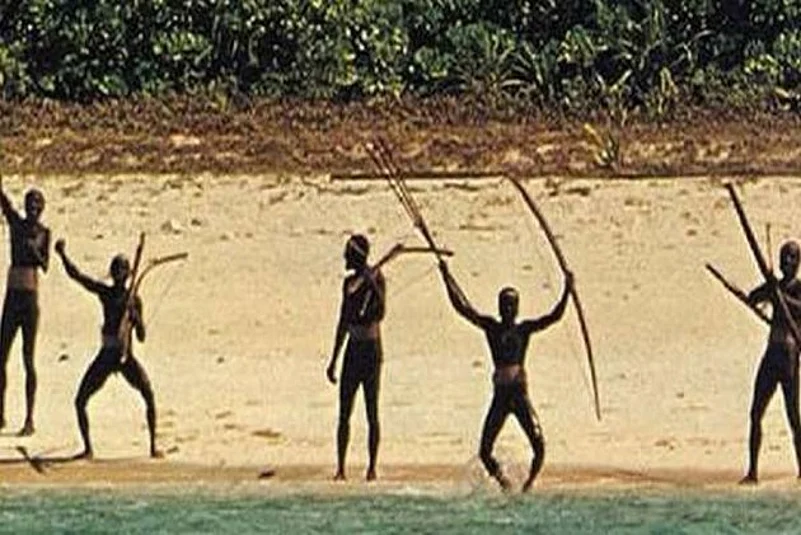
After a US tourist tried to make contact with the recluse Sentilese tribe of the Andaman islands, he didn't come back. Reports later concluded that he was killed by the Sentinelese who are hostile to any attempts contact by outsiders. What followed was a debate over mainstreaming such Tribal populations and their right to be left alone.
Advertisement
Read the full story here: https://bit.ly/2Q8XLbC
The Bulandshahr Violence
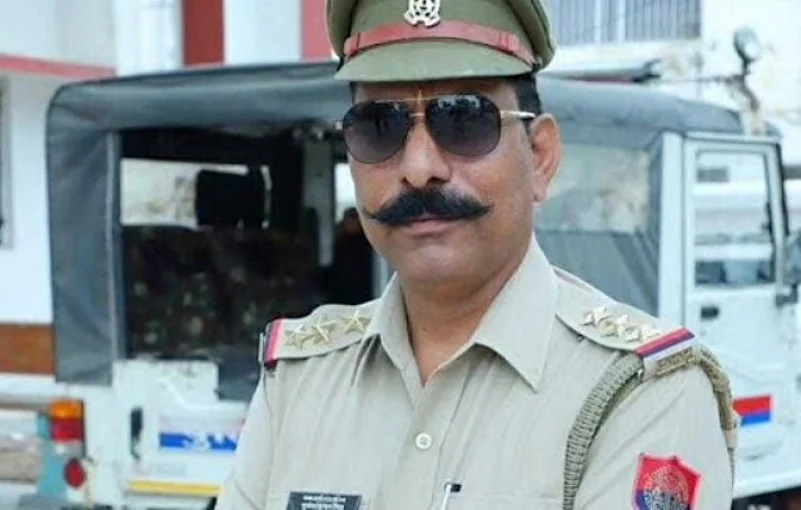
A mob of some 400 people, including right-wing activists, fought pitched battles with police in Siana area of Bulandshahr district, apparently after right-wing activists were angered by the discovery of cow carcasses strewn in a nearby jungle.
They set fire to dozens of vehicles, hurled stones and also fired at police who retaliated with gunfire.
In the ensuing violence, Subodh Kumar Singh, the station house officer (SHO) of Siana, and Sumit Kumar, a local youth, were killed.
The police have so far failed to arrest the main accused in the case even as the Uttar Pradesh government led Yogi Adityanath has faced unrelenting criticism over the handling of the incident.
Advertisement
Read the full story here: https://bit.ly/2GJjsQk
Abhijit Iyer Released
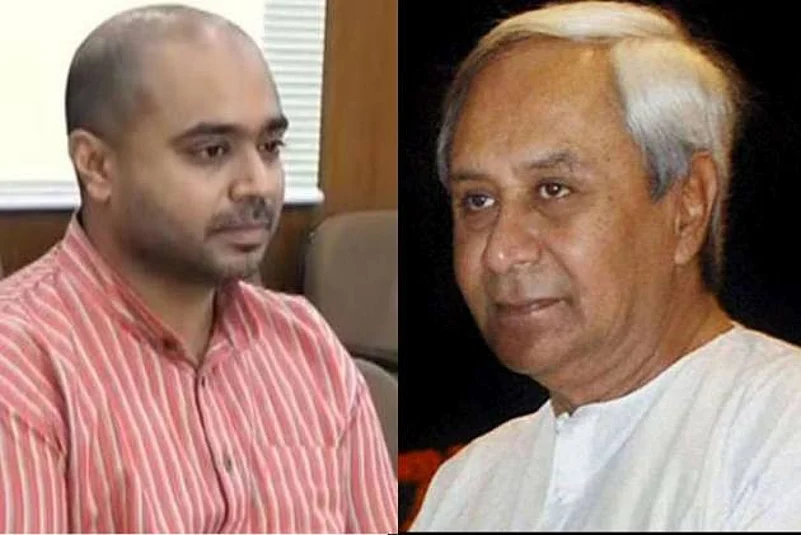
Defence analyst Abhijit Iyer-Mitra was arrested by the Odisha police over allegedly hurting sentiments of the Odiya people after he made some foolhardy comments in an Instagram post about the much revered Konark temple of the state. Mitra's persecution had less to with his ability to crack nonsensical jokes, and much more with his political friends in the state, as he was close to Baijayant Panda, whom the state Chief Minister doesn't seem to appreciate even after he ousted him from the BJD. Though the Odisha government later released him, Mitra's arrest was a test-case for freedom of expression and political vendetta in India of 2018.
Advertisement
Read the full story here: https://bit.ly/2Q79RSE
Rafale deal controversy and SC’s verdict
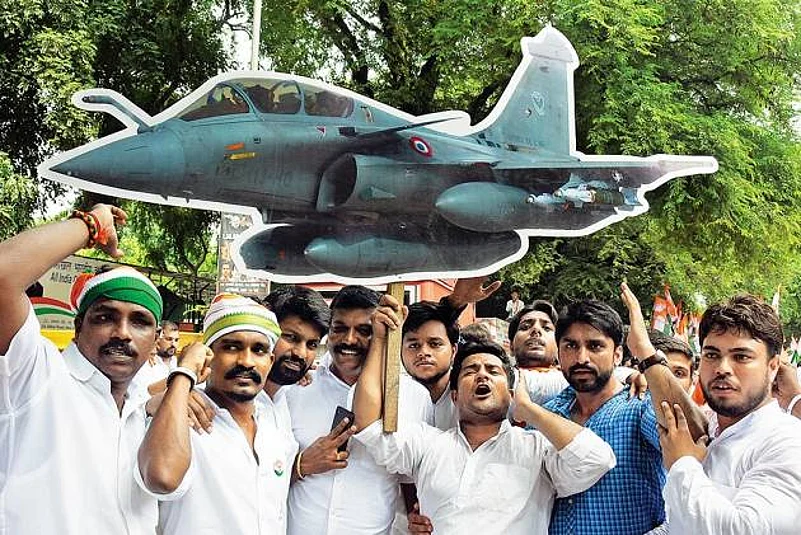
One of the most talked about defence deal this year was the Rafale deal. In April 2015, Prime Minister Narendra Modi had announced that India will buy 36 French-manufactured Rafale fighter jets off-the-shelf from Dassault, the French aircraft builder and integrator. The Rafale was chosen in 2012 over rival offers from the United States, Europe and Russia.
The original plan was that India would buy 18 off-the-shelf jets from France's Dassault Aviation, with 108 others being assembled in India by the state-run Hindustan Aeronautics Limited or HAL in Bengaluru.
The controversy aroused when Modi broke his promise he had made to the last UPA government. Stating that the cost of the 126 jets are too high Modi government said they will buy 36 ‘ready-to-fly’ fighters instead of trying to acquire technology from Dassault and make it in India.
Advertisement
The controversy saw a sharp exchange of words between the government and the Opposition. The Supreme Court on December 14, however, dismissed all petitions seeking a court-monitored probe into the matter.
Read the full story here: https://bit.ly/2VfbFwL
Kartarpur corridor

On November 28 Pakistan Prime Minister Imran Khan laid down the foundation stone for the Kartarpur corridor.
The demand for a corridor that can connect India and Pakistan was a long due. Through the corridor, pilgrims from India will be able to visit Gurdwara Darbar Sahib at Kartarpur.
Read the full story here: https://bit.ly/2Q7iBbj
And here are some of the major judgments
Aadhaar
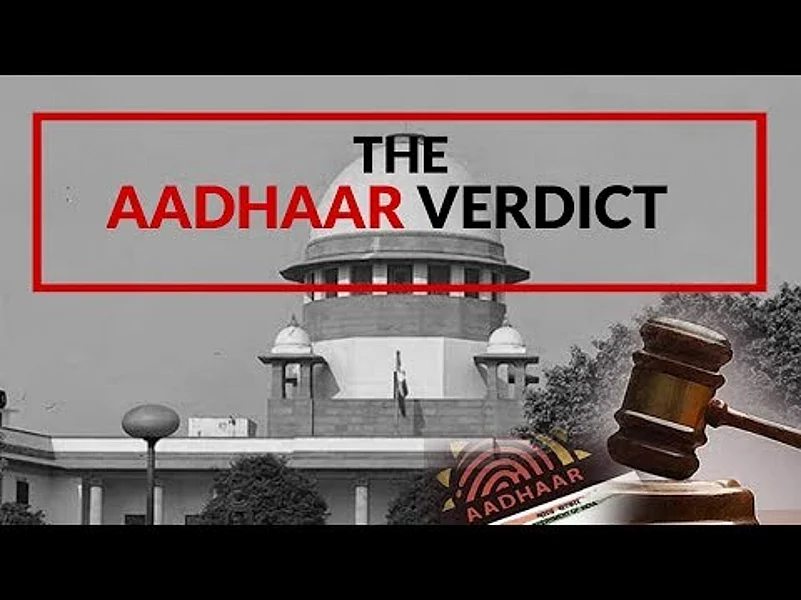
The Supreme Court upheld the constitutionality of the Aadhaar scheme even as it struck down some of the provisions of the Aadhaar Act, in favour of individual liberty and data protection. The verdict was not unanimous and Justice D Y Chandrachud's dissenting judgement was received with much appreciation.
Advertisement
The Aadhaar case was a landmark one in modern Indian history as it entailed questions that had not been previously deliberated by the legal system of the country. The privacy judgement was also a direct fall out of the case as the matter was raised in the court during the Aadhaar hearings.
Read the full story here: https://bit.ly/2TgM6K6
Section 377
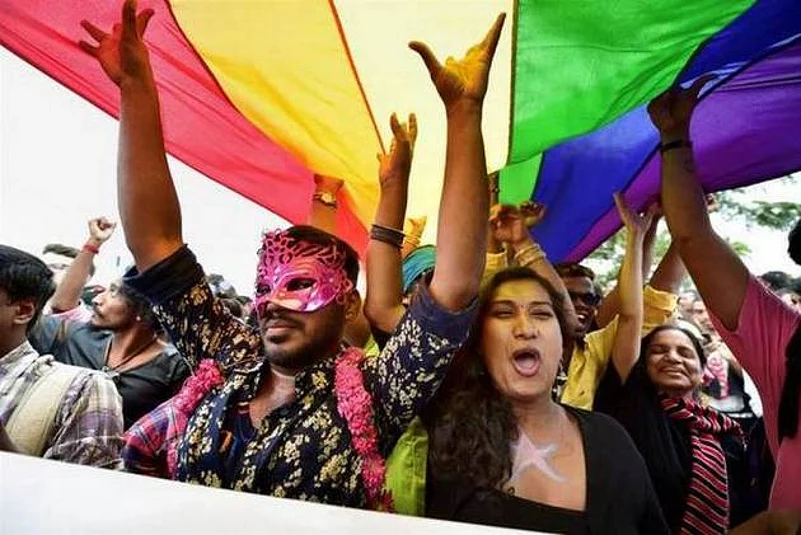
The Supreme Court in September decriminalised homosexuality in India as it abolished section 377 of the IPC. The judgement marked a victory for LGBTQ community who had been fighting for the abolition of the penal provisions in lower courts for many years.
Advertisement
The judgement signalled a liberal approach by the judiciary with respect to individual choices and matters of sexuality.
Even as the Centre did not oppose the arguments of those petitioning for decriminalisation, it did not explicitly aid them either.
Read the full story here: https://bit.ly/2EQTdVt
Adultery

Following the Section 377 judgement, taking another liberal stride in matters of jurisprudence, the apex court struck down the law on adultery on September 27 2018.
The then Chief Justice Dipak Misra, and Justices A M Khanwilkar and R F Nariman held that Section 497 of the Indian Penal Code dealing with the offence of adultery is unconstitutional.
Advertisement
The court said adultery can be a ground for a civil wrong, a ground for divorce but not a criminal offence.
The CJI said section 497 of the IPC is manifestly arbitrary the way it deals with women.
Before the apex court judgement, the offence of adultery entailed a maximum punishment of five years, or with fine, or both.
Read the full story here: https://bit.ly/2DahpC8
Hashimpura Massacre Case
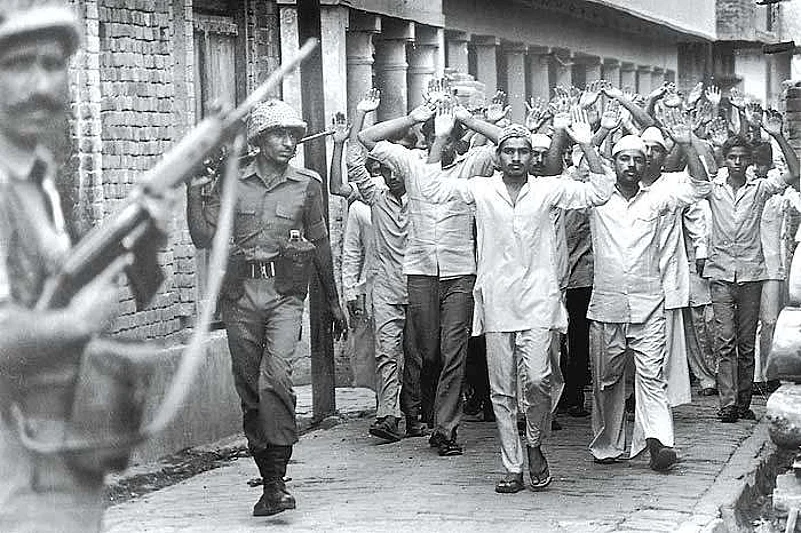
In the infamous Hashimpura massacre case, the Delhi High Court on October 31 sentenced to life imprisonment 16 personnel of the Uttar Pradesh Provincial Armed Constabulary (PAC) for killing 42 people in 1987 Hashimpura, Meerut.
Advertisement
The Court termed the massacre as "targeted killing" of unarmed and defenceless persons by the police.
The killings took place during a riot in Meerut when the victims were picked up from the Hashimpura neighbourhood by the 41st Battalion of the PAC during a search operation.
Read the full story here: https://bit.ly/2Q4xaN2
Ayodhya-Mosque
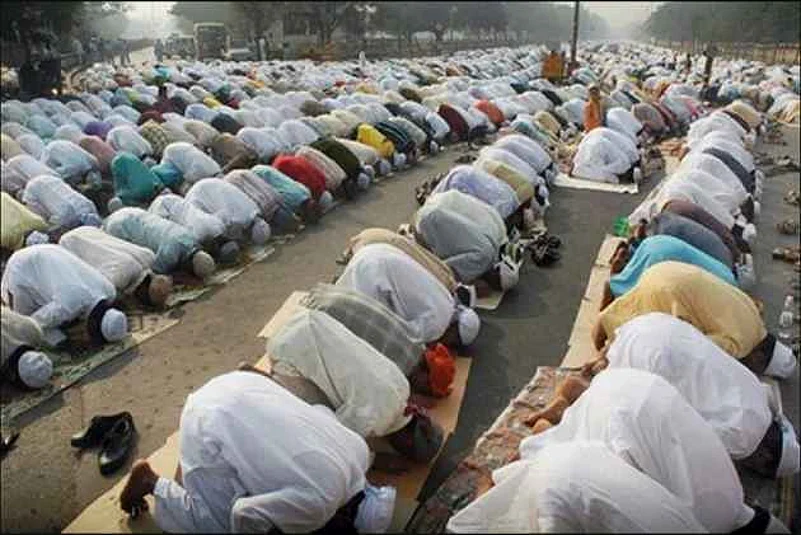
On September 27, the Supreme Court declined to set up a larger bench for a relook of its 1994 verdict which held a "mosque is not an essential part of the practice of Islam" paving the way for the apex court to hear the politically sensitive main Ayodhya title.
Advertisement
A Muslim group had assailed the observations made by a five-judge Constitution bench in 1994 in the Ismail Faruqui case and had sought reconsideration of its observation that a mosque is not an essential part of Islam on the grounds that it has affected the decison of the High Court in the land dispute.
"We again make it clear that questionable observations made in Ismail Faruqui's case were made in context of land acquisition. Those observations were neither relevant for deciding the suits nor relevant for deciding these appeals," said Justice Ashok Bhushan, who read out the judgement for himself and the CJI.
Advertisement
Read the full story here: https://bit.ly/2SrClIQ
Sabarimala Controversy
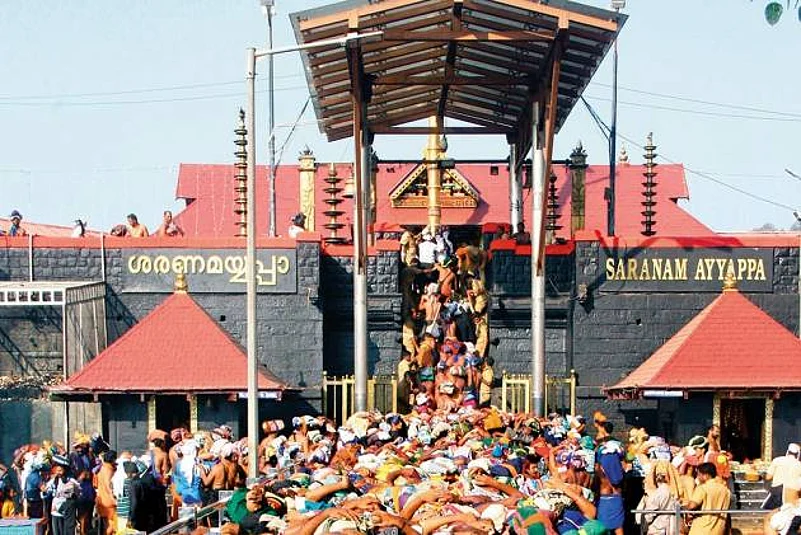
In another landmark verdict, the Supreme Court on September 28 lifted a ban that prevented women and girls between the age of 10 and 50 from entering the famous Sabarimala temple in Kerala, holding this centuries-old Hindu religious practice is illegal and unconstitutional.
Following the judgement, the Kerala govt's decision to implement the ban faced stiff opposition from right-wing groups, Ayappa devotees and the BJP as well as Congress.
So far, despite repeated attempts, no women of menstruating age has been able to enter the revered shrine situated on a hilltop.
Read the full story here: https://bit.ly/2CDsSsg
Advertisement
Sajjan Kumar Convicted in 1984 Anti-Sikh riot case
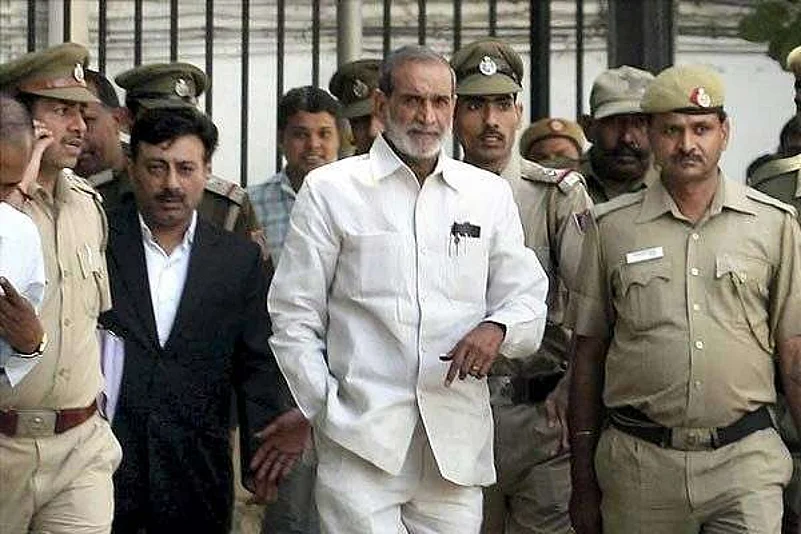
Sajjan Kumar a former leader of the Congress party, was convicted and sentenced to life term for "remainder of his natural life" in the 1984 anti-Sikh riots case by the Delhi High Court on December 17.
This marked the first high-profile conviction in the 1984 riots thet rocked Delhi and other parts of India, following the assassination of then prime minister Indira Gandhi by her Sikh bodyguards.
The case relates to the killing of five Sikhs in Raj Nagar part-I area in Palam Colony in South West Delhi on November 1-2, 1984 and burning down of a Gurudwara in Raj Nagar part II.
Advertisement
Following the verdict, Kumar resigned from the primary membership of Congress and has appealed against the High Court's decision in the Supreme Court.
Read the full story here: https://bit.ly/2EQsEjb
In 2018 a number of Indian personalities, who shaped modern Indian politics for many past decades, passed away.
Atal Bihari Vajpayee Death

Former Prime Minister and Bharat Ratna Atal Bihari Vajpayee died on 16 August 2018 at the age of 93. Vajpayee was admitted to the All India Institute of Medical Sciences (AIIMS) in Delhi.
Vajpayee was suffering from urinary infection, kidney problems and chest congestion.
Read the full story here: https://bit.ly/4TRxCS
M Karunanidhi Death
Advertisement
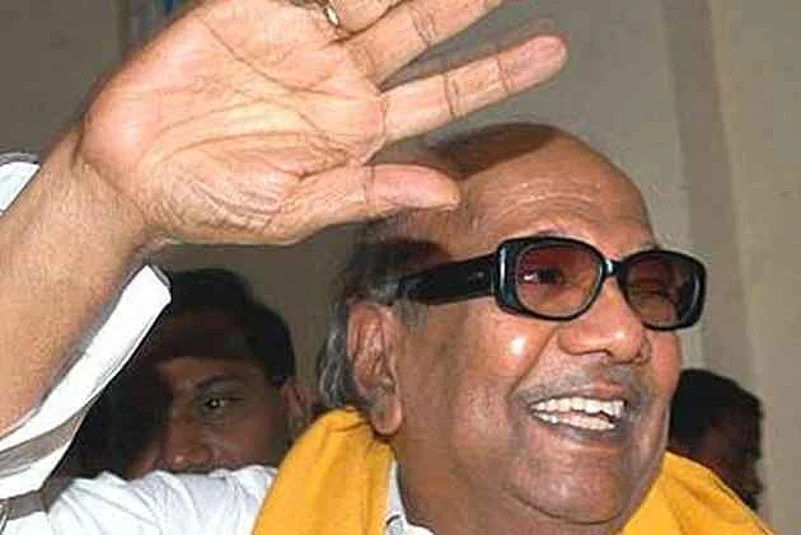
Former Chief Minister of Tamil Nadu, M Karunanidhi died on August 7, 2018. The political powerhouse whose popularity never seemed to wane, Karunanidhi was chief minister of the south Indian state of Tamil Nadu five times. A long-standing advocate and leader of the local Dravidian movement and 10-time president of the Dravida Munnetra Kazhagam (DMK) political party, he lobbied for rights of state governments, state autonomy and federalism in India; he is the man who fought for and secured the right for chief ministers in India to hoist the national flag on Independence Day.
Read the full story here: https://bit.ly/6NxFTYU
Somnath Chatterjee Death
Advertisement
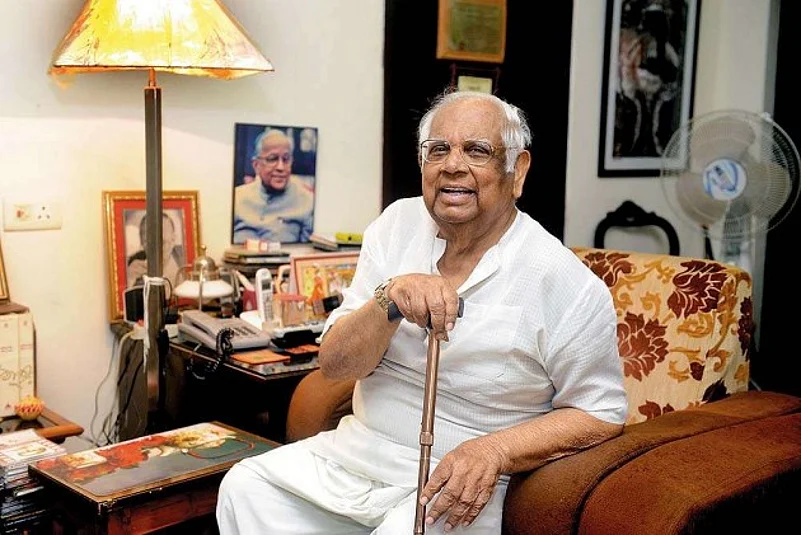
The country suffered a great loss with the demise of former Lok Sabha Speaker, Somnath Chatterjee. On August 14, 2018 Chatterjee died in Kolkata at the age of 89.
Chatterjee was one of the longest-serving politicians in Parliament.
Read the full story here: http://bit.ly/2GKposl
Ananth Kumar Death

The Union Minister of Parliamentary Affairs died at the age of 59 on 12 November 2018. He was suffering from cancer.
Ananth Kumar was one of the few BJP leaders who served as cabinet minister for both Atal Bihari Vajpayee and the Narendra Modi. He monitored the mid-launch of Goods and Service Tax (GST).
Kumar was among the few politicians who helped BJP gain traction in South India.
Advertisement
Read the full story here: http://bit.ly/2VdZnVy






